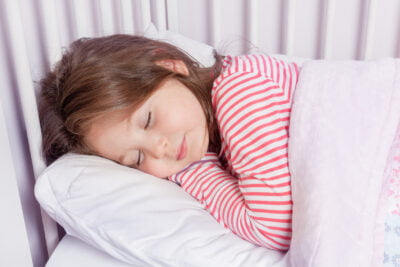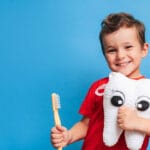 As a loving parent, you’d give practically anything in exchange for your children’s good health and proper development. That’s why there’s been major concern among parents in recent years, as the number of children diagnosed with Attention Deficit Hyperactivity Disorder (ADHD) has steadily increased.
As a loving parent, you’d give practically anything in exchange for your children’s good health and proper development. That’s why there’s been major concern among parents in recent years, as the number of children diagnosed with Attention Deficit Hyperactivity Disorder (ADHD) has steadily increased.
However, doctors, scientists and researchers have made a startling discovery: In many cases, children demonstrating symptoms of ADHD are actually suffering from sleep apnea.
When Children Lack Good Sleep
The American Sleep Apnea Association (ASAA) reports the following:
“Studies have suggested that as many as 25 percent of children diagnosed with attention-deficit hyperactivity disorder may actually have symptoms of obstructive sleep apnea and that much of their learning difficulty and behavior problems can be the consequence of chronic fragmented sleep. Bed-wetting, sleep-walking, retarded growth, other hormonal and metabolic problems, even failure to thrive can be related to sleep apnea.
Some researchers have charted a specific impact of sleep disordered breathing on ‘executive functions’ of the brain: cognitive flexibility, self-monitoring, planning, organization, and self-regulation of affect and arousal.”
So, if your child has been diagnosed with ADHD or is demonstrating symptoms, consider the possibility of sleep apnea or other sleep-related breathing disorders (SRBD).
Identifying Sleep Apnea in Children
Children who suffer from sleep apnea or other SRBDs experience recurring episodes of interrupted sleep. This happens when soft tissues near the back of the throat (such as the tonsils or tongue) block the child’s airway.
Different factors, including the shape and size of your child’s mouth and his or her body weight, can increase risk of the condition. Additionally, sleeping on the back exacerbates the problem, as doing so may cause the tongue to lie in front of the airway.
How do you know if your child is suffering from sleep apnea or a similar SRBD? He or she may demonstrate one or more of the following symptoms:
- Snoring
- Interruptions in breathing
- Chronic breathing through the mouth
- Constant tossing and turning
- Panic attacks (especially at night)
- Bed-wetting
If your child exhibits any of these, he or she may be experiencing sleep apnea.
Treating Sleep Apnea in Children
If your child is diagnosed with sleep apnea, your physician, dentist, and sleep apnea specialist will work together to determine the best method of treatment.
These methods may include:
- Orthodontics: If your child is young, orthodontic appliances may be used to create more room in the mouth, increasing airflow.
- Oral Appliance Therapy (OAT): Older children who have stopped growing may benefit from Oral Appliance Therapy. An oral appliance will be custom-fit to your child’s mouth, designed to reposition the jaw and keep the tongue from obstructing the airway.
- Continuous Positive Airway Pressure (CPAP): With CPAP therapy, your child wears a mask while sleeping that is connected to a CPAP machine. This machine delivers a constant yet mild flow of air pressure, designed to keep the airway open.
- Surgery: In certain cases, removal of the tonsils or adenoids may be recommended.
The key, of course, is identifying the root causes affecting your child’s sleeping and breathing difficulties.
Contact Us
Sleep apnea and related conditions are serious and can even be life-threatening if left untreated. If your child is exhibiting symptoms of sleep apnea, get in contact with the Yuba City Dentistry Group today.
Schedule a Sleep Apnea Consultation


